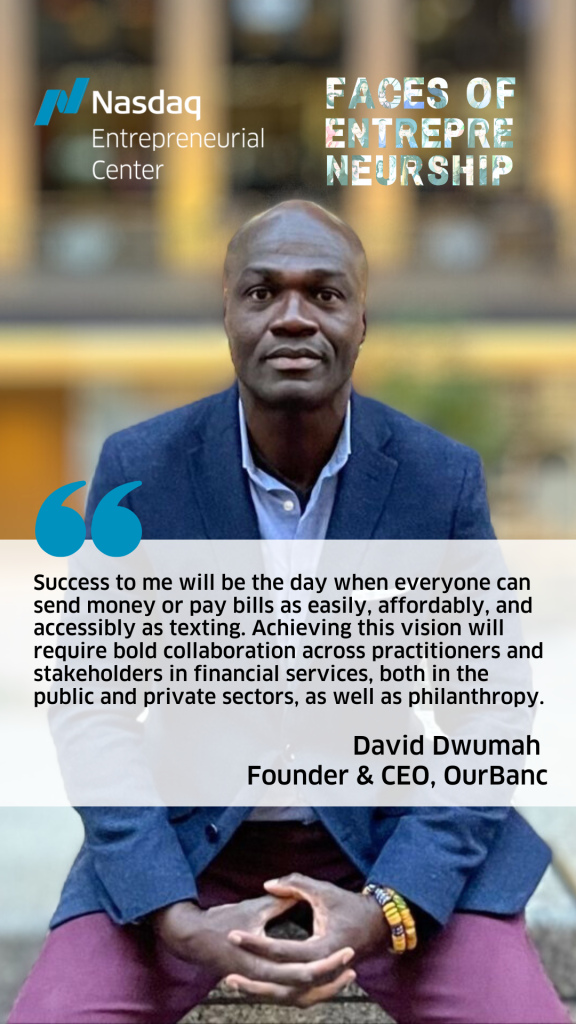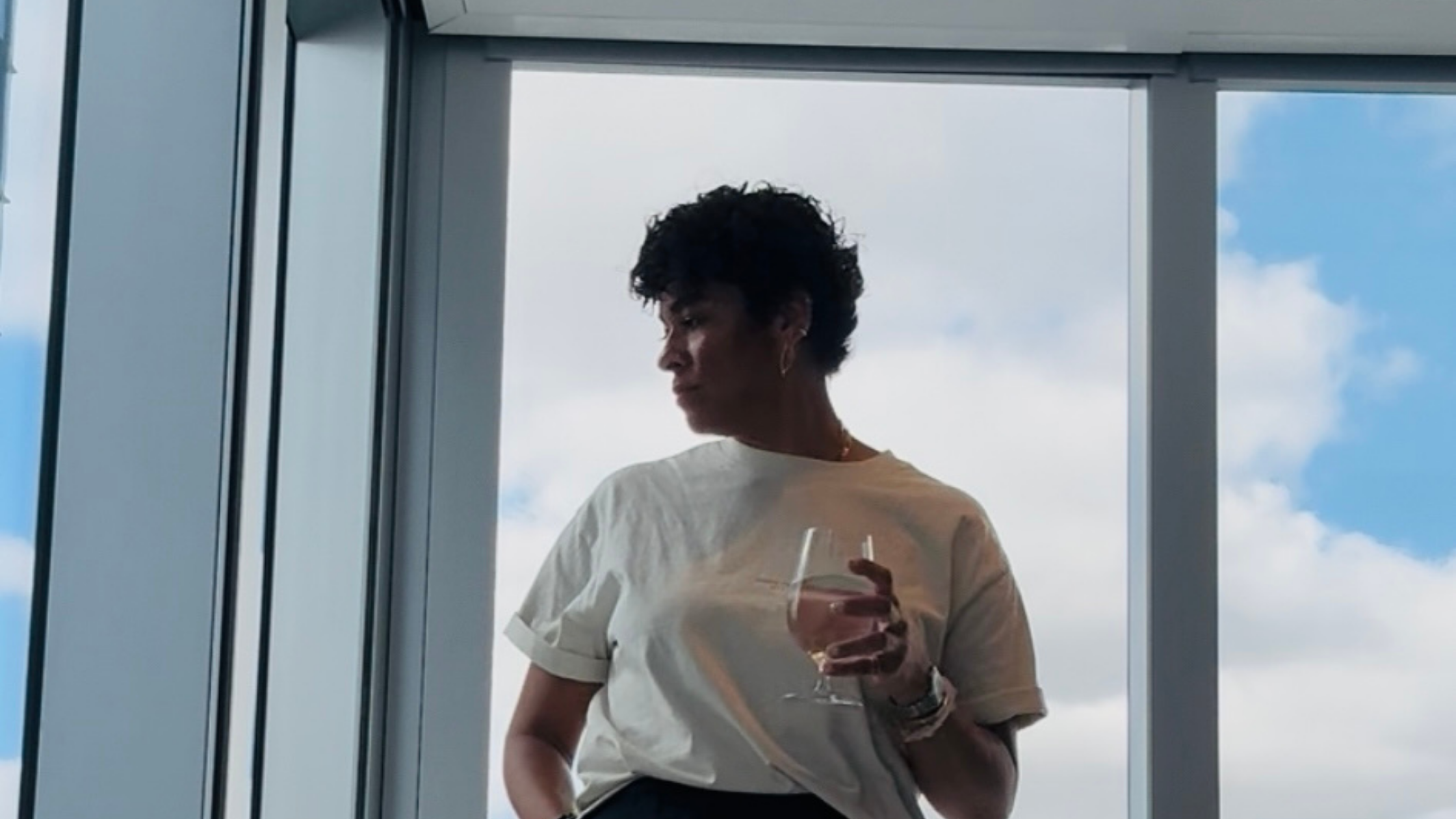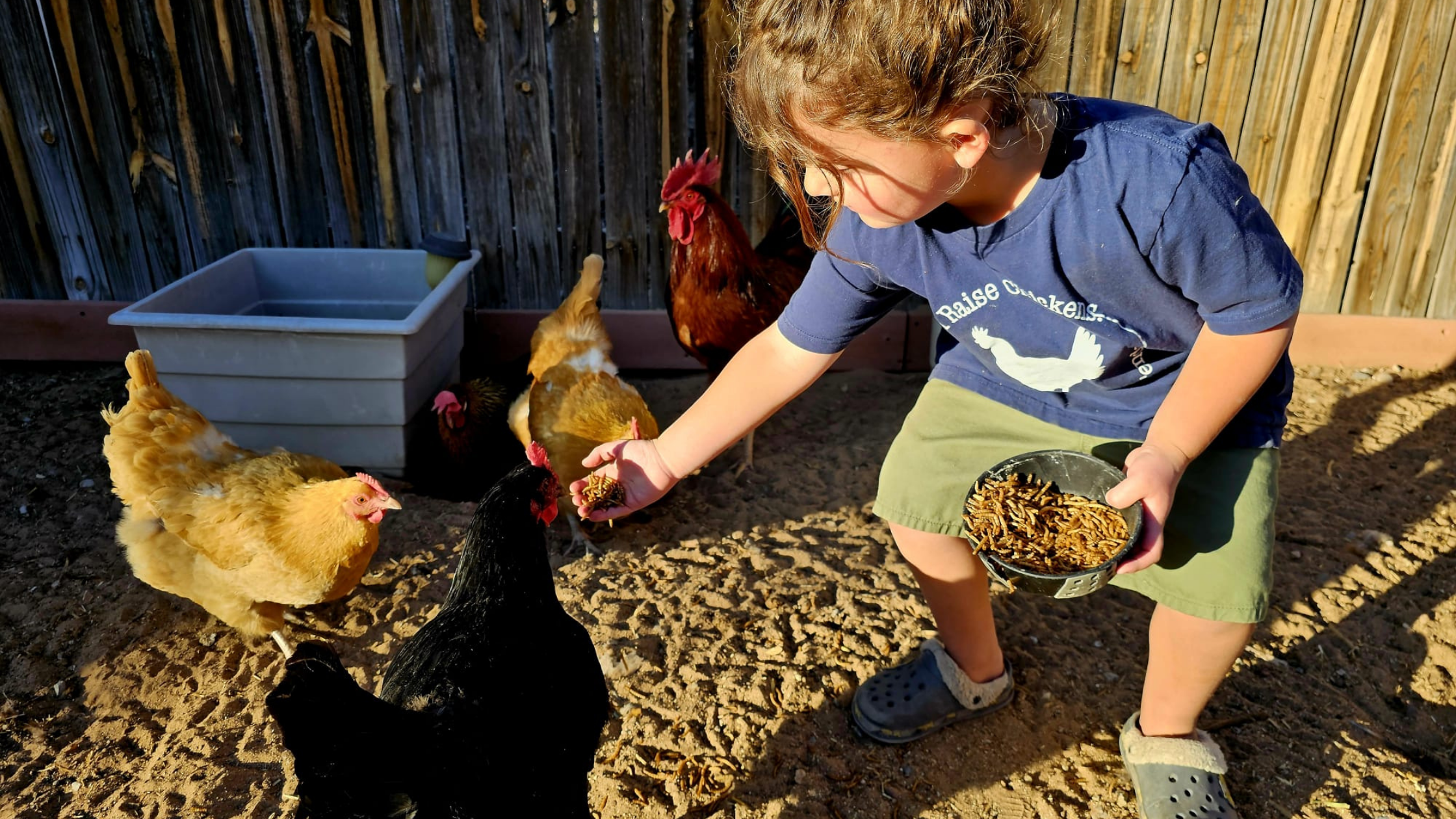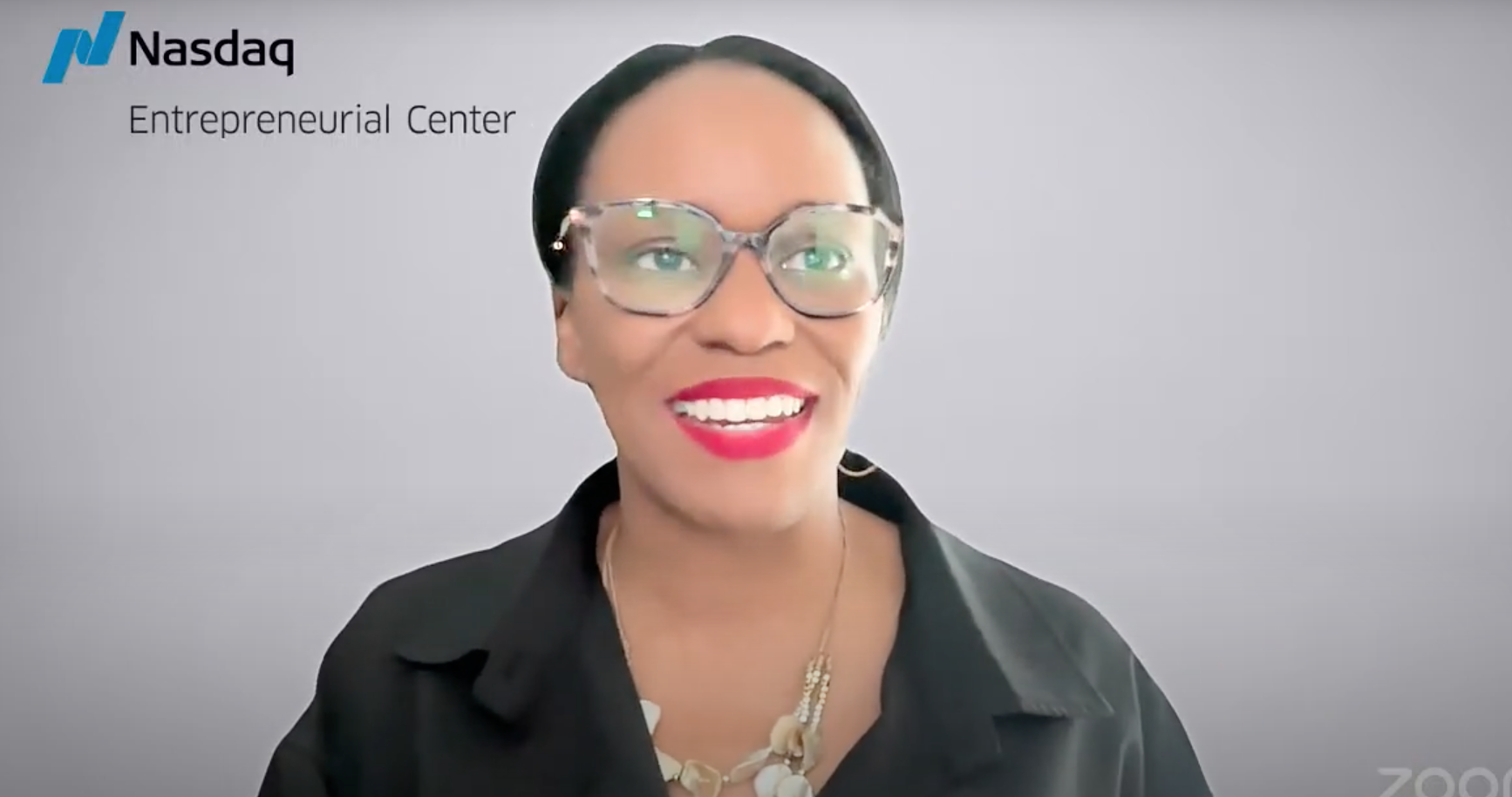David Dwumah is the Founder and CEO of OurBanc, a FinTech company dedicated to reducing the racial wealth gap by leveraging the power of purpose, community, and innovative technologies to provide equitable, sustainable, and inclusive financial products and services. With over fifteen years of experience at Citizens Bank, the Boston Federal Reserve, and EY’s Financial Services practice, David is also a Steward of the Council for Inclusive Capitalism, a member of the U.S. Faster Payments Council, and an active participant in the Black Economic Council of Massachusetts. A recognized thought leader, David frequently speaks at major payment conferences and contributes to discussions on Faster Payments, Financial Inclusion, ESG, and Sustainability. His journey, driven by a belief in community and transformative technology, exemplifies resilience and a commitment to creating a more inclusive financial system.
What does “entrepreneurship” mean to you?
 David Dwumah: Entrepreneurship means thinking beyond the confines of a box, reaching out to create business opportunities that are more equitable, sustainable, and inclusive. It’s about bettering the lives of others while considering the broader impact on society.
David Dwumah: Entrepreneurship means thinking beyond the confines of a box, reaching out to create business opportunities that are more equitable, sustainable, and inclusive. It’s about bettering the lives of others while considering the broader impact on society.
Tell us about your first experience with entrepreneurship.
DD: In high school, a friend and I embarked on a coin brokering business. Although it ultimately failed, the experience taught me a crucial lesson: it is through failure that we learn our most important lessons.
What is your company’s origin story? What is the biggest reason you started your business? What did those early days look like and teach you?
DD: Growing up in Ghana, I’ve always been intrigued by Susu—an informal community-based savings practice that enables family and friends to borrow and lend money to each other. Additionally, witnessing the transformative impact of Mobile Money on the ‘unbanked’ and ‘underbanked’ population further fueled my passion. OurBanc is the culmination of my personal experiences, belief in people helping people, and the strategic use of appropriate technology, such as real-time payments adoption, to improve lives.
What do you wish you knew when you started? Is there anything you would do differently?
DD: Reflecting on my journey and experiences, I realize I could have better balanced my family life with the obligations of building a startup.
What does “success” look like for you? We’d love to hear your biggest, boldest dream. What do you think will help you achieve it?
DD: Success to me will be the day when everyone can send money or pay bills as easily, affordably, and accessibly as texting. Achieving this vision will require bold collaboration across practitioners and stakeholders in financial services, both in the public and private sectors, as well as philanthropy
What is your superpower as an entrepreneur?
DD: Resiliency
What are your personal driving principles, your top values?
DD: As a startup entrepreneur, I consider the following as my core values: Passion and Purpose – Cultivating passion and nurturing purpose; Continuous Education – Fostering a culture of learning; Innovation and Creativity – Prioritizing breakthrough ideas; Transparency – Being authentic and transparent; Excellent Customer Service – Putting the customer first; and Social Responsibility – Giving back to the community.
How have your personal principles and values shaped your company’s values and principles? Give us some examples.
DD: We have set very bold and audacious goals for ourselves. We have enabled everyday people to learn about early-stage investing and invest alongside institutional and accredited investors. We accomplished this by leveraging Regulation Crowdfunding which lowered the barriers to investing and ensured more open and inclusive access to our Seed round.
What’s it like to work alone or with your partners?
DD: Our collaborative journey with key partners has been remarkable. We intentionally collaborate on the product side, advocating for the adoption of real-time payments. While the frequency of meetings can be high at times, the engaging conversations and rewarding outcomes make it all worthwhile.
What role does mentorship play in your world (as a mentor or mentee)? Tell us about what makes mentorship valuable to you and your business.
DD: As an entrepreneur, I’ve found mentorship to be absolutely critical. I have a close-knit group of core mentors whom I can reach out to for advice and learning opportunities. Their guidance has been invaluable, especially during seismic changes in the payment industry. Having mentors who understand the nuances of entrepreneurship and payments can provide timely insights has significantly impacted my journey.
Can you share some insights into the market or industry you operate in? How have you navigated challenges and changes in the market landscape?
DD: The payments industry is currently undergoing its most significant transformation in a generation, with the transition to real-time payments. Although real-time payments currently account for less than 3% of total payment volume, their adoption is crucial. By raising awareness about this shift and emphasizing the benefits—especially in advancing financial inclusion—I collaborate with other stakeholders to drive industry-wide understanding and adoption.
Where do you turn for inspiration?
DD: I find inspiration in my family and my unwavering commitment to creating a better world for my children. Their love and the desire to leave a positive impact drive me to take meaningful actions every day.
Do you have a favorite quote, mantra, or words of wisdom to get through the tough days?
DD: On the tough days, I remind myself that “no condition Is permanent, this too shall pass.”
What is a problem that keeps you up at night?
DD: Not having the right resources and capital at the right time from the right sources to enable us to move fast but with intention and purpose.
How do you think about helping others through your work?
DD: Supporting minority founders goes beyond just financial investment; it involves creating an inclusive ecosystem that provides mentorship, operational support, and infrastructure. By recognizing these challenges and advocating for change, we’re contributing to a more equitable entrepreneurial landscape. We are hopeful that our journey and efforts will help create opportunities for yet-to-be-discovered geniuses who will do great things beyond our wildest imagination.
What kind of an entrepreneur do you want to be known as – as in, what do you want your legacy to be?
DD: I hope my legacy is to be known as someone who did my part to advance the inclusive payments conversations and actions that positively impacted the financial lives of others and helped catalyze more financial inclusion.
Do you have someone you’d like to nominate to be profiled in our Faces of Entrepreneurship series? Please let us know by emailing media@thecenter.nasdaq.org or submitting your nomination using this form.




